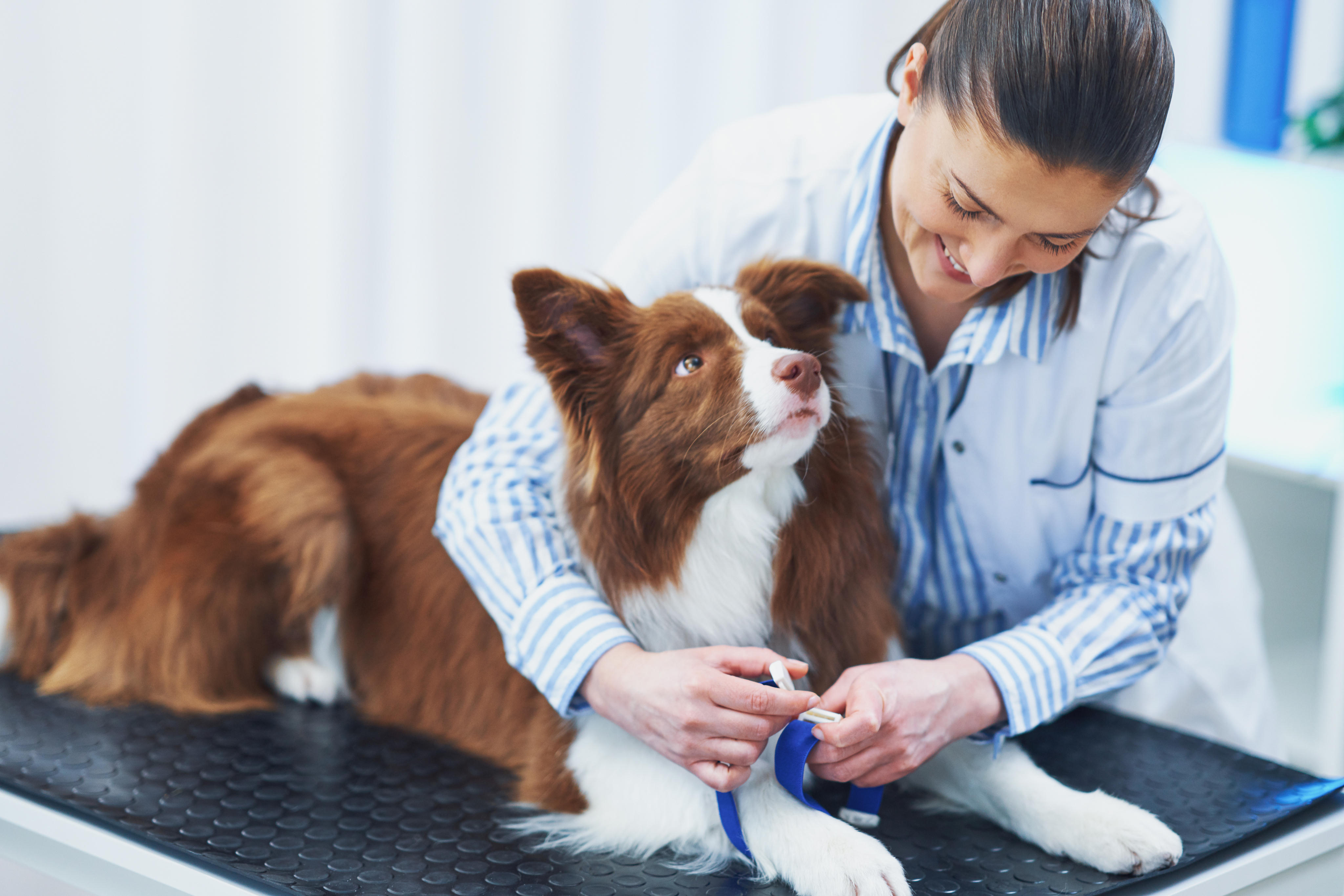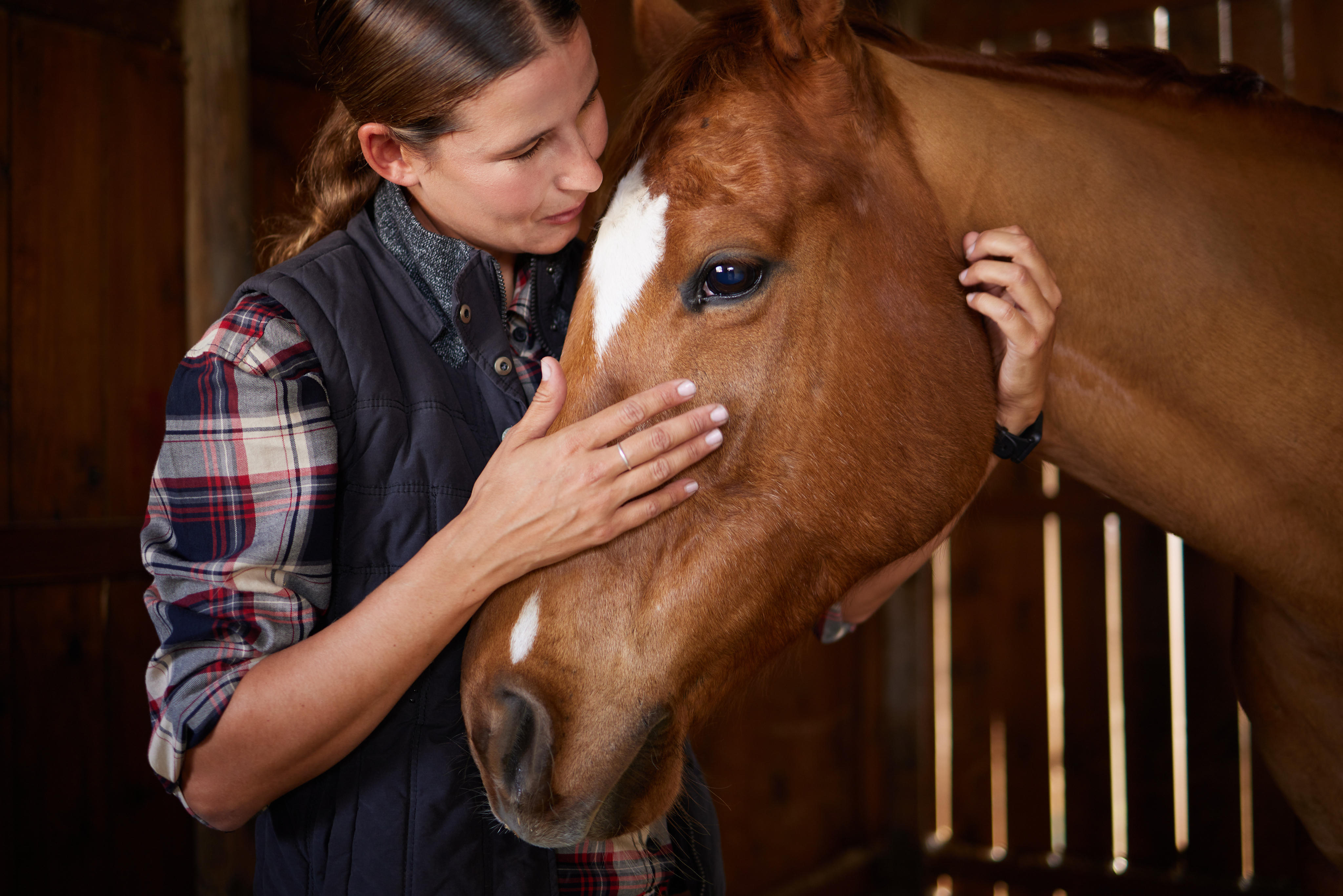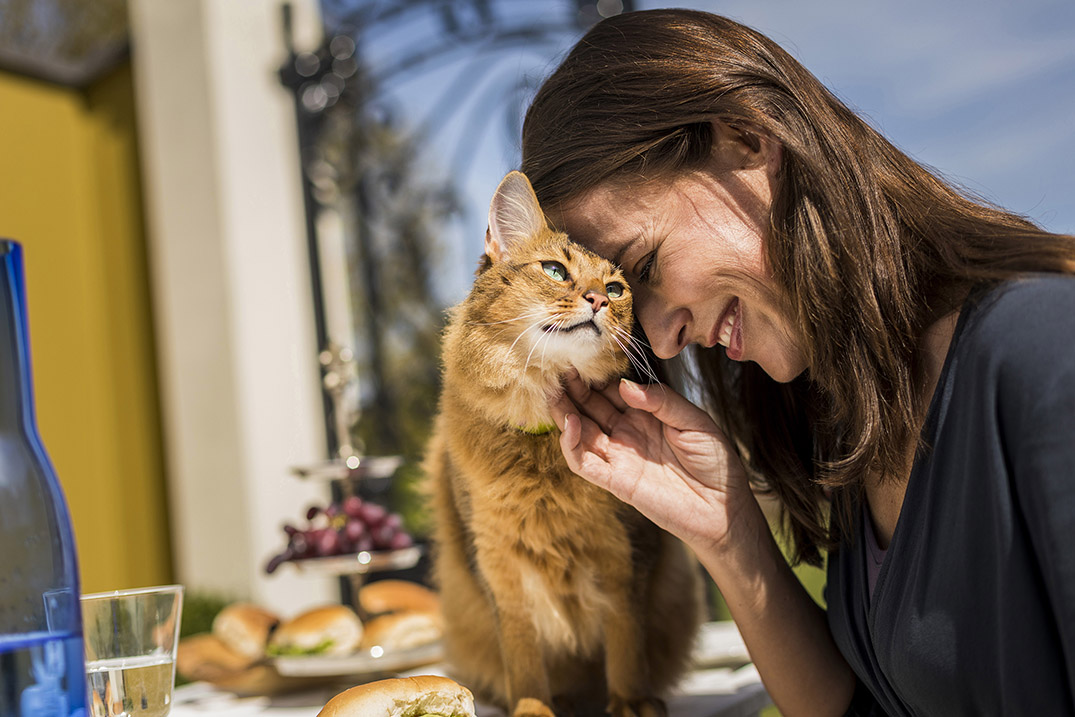Watch for Changes
There can be visible changes to your cat’s behavior and overall health from diabetes, and no one knows your pet better than you. It is important that your cat be thoroughly examined by a veterinarian at least once a year. For cats at risk, more frequent visits may be advised.
Signs of Feline Diabetes
Knowing the signs of diabetes is the first step in protecting your cat’s health. If any of these signs apply to your pet, bring your cat to your veterinarian for a checkup:
Urinates frequently or large amounts
Drinks a lot of water
Always hungry
Weight loss
Dull or dry coat
Sleeps more or is less active
Download “The Signs of Diabetes” Checklist
Download
“When I was first diagnosed, I was depressed and didn’t want to play. Diabetes can show many signs like this.”
-SUGAR
A Visit to Your Veterinarian
If your cat shows signs of diabetes, your veterinarian will ask about them, and check your cat’s general health to rule out the possibility of other conditions or infections.
The first test your veterinarian will do is check your cat’s urine for the presence of glucose and ketones. If indicated, the next step is to measure your cat’s blood glucose concentration. The diagnosis only becomes definite when glucose is persistently found both in the urine and at a high level in the blood.
Further Reading
Talk to Your Vet Today
Find a veterinarian to learn more about pet diabetes, and how cats and dogs can lead a happy, healthy life with proper management.
Find a vet near meIMPORTANT SAFETY INFORMATION:
VETSULIN® and VETPEN® are for use in animals only. Dogs and cats known to have an allergy to pork or pork products should not be treated with VETSULIN®. VETSULIN® is contraindicated during periods of hypoglycemia. Animals with severe ketoacidosis, anorexia, lethargy, and/or vomiting should be stabilized with short-acting insulin and appropriate supportive therapy before use. As with all insulin products, careful patient monitoring for hypoglycemia and hyperglycemia is essential. Overdosage can result in profound hypoglycemia and death. Progestogen and glucocorticoid use should be avoided. The safety and effectiveness of VETSULIN® in puppies, kittens, breeding, pregnant, and lactating dogs and cats has not been evaluated. Keep out of reach of children. Avoid contact with eyes. In case of contact, immediately flush eyes with copious amounts of water for at least 15 minutes. Accidental injection may cause clinical hypoglycemia. In case of accidental injection, seek medical attention immediately. Exposure to the product may induce a local or systemic allergic reaction in sensitized individuals. For complete safety information, refer to the product label.




 Go To United States
Go To United States Algeria
Algeria Argentina
Argentina Australia
Australia Austria
Austria Bahrain
Bahrain Belgium (Dutch)
Belgium (Dutch) Brazil
Brazil Canada (English)
Canada (English) Chile
Chile Colombia
Colombia Croatia
Croatia Czech Republic
Czech Republic Denmark
Denmark Ecuador
Ecuador Egypt
Egypt Finland
Finland France
France Germany
Germany Greece
Greece Hungary
Hungary India
India Indonesia
Indonesia Iraq
Iraq Ireland
Ireland Israel
Israel Italy
Italy Japan
Japan Jordan
Jordan Kuwait
Kuwait Lebanon
Lebanon Malaysia
Malaysia Mexico
Mexico Morocco
Morocco Netherlands
Netherlands New Zealand
New Zealand Norway
Norway Oman
Oman Panama
Panama Peru
Peru Philippines
Philippines Poland
Poland Portugal
Portugal Qatar
Qatar Romania
Romania Russian Federation
Russian Federation Saudi Arabia
Saudi Arabia South Africa
South Africa South Korea
South Korea Spain
Spain Sweden
Sweden Switzerland (French)
Switzerland (French) Taiwan
Taiwan Thailand
Thailand Tunisia
Tunisia Turkey
Turkey Ukraine
Ukraine United Arab Emirates
United Arab Emirates United Kingdom
United Kingdom Uruguay
Uruguay Yemen
Yemen Global
Global